The Food and Drug Administration (FDA) is constantly monitoring the food supply to ensure contaminated products don’t make their way onto grocery store shelves or, worse, into Americans’ bodies.
The FDA just announced that they found a batch of Roland Foods’ tahini to have possibly been contaminated with salmonella and are telling Americans to check their cupboards and dispose of this product immediately.
Roland Foods Announced a Recall Last Week

Roland Foods released a statement on February 27, 2024, that read, “[Roland Foods] of New York, New York is recalling a specific production code of Roland® Tahini (100% Ground Sesame Seeds) 16 oz. because it has the potential to be contaminated with Salmonella.”
The announcement went on to say, “The recall was as the result of a routine sampling program by the Michigan Department of Agriculture and Rural Development, which revealed that the product tested positive for Salmonella. The company has ceased distribution of the product and has initiated an investigation in partnership with the manufacturer as to the root cause of the problem.”
The FDA Reposted the Company’s Announcement the Next Day
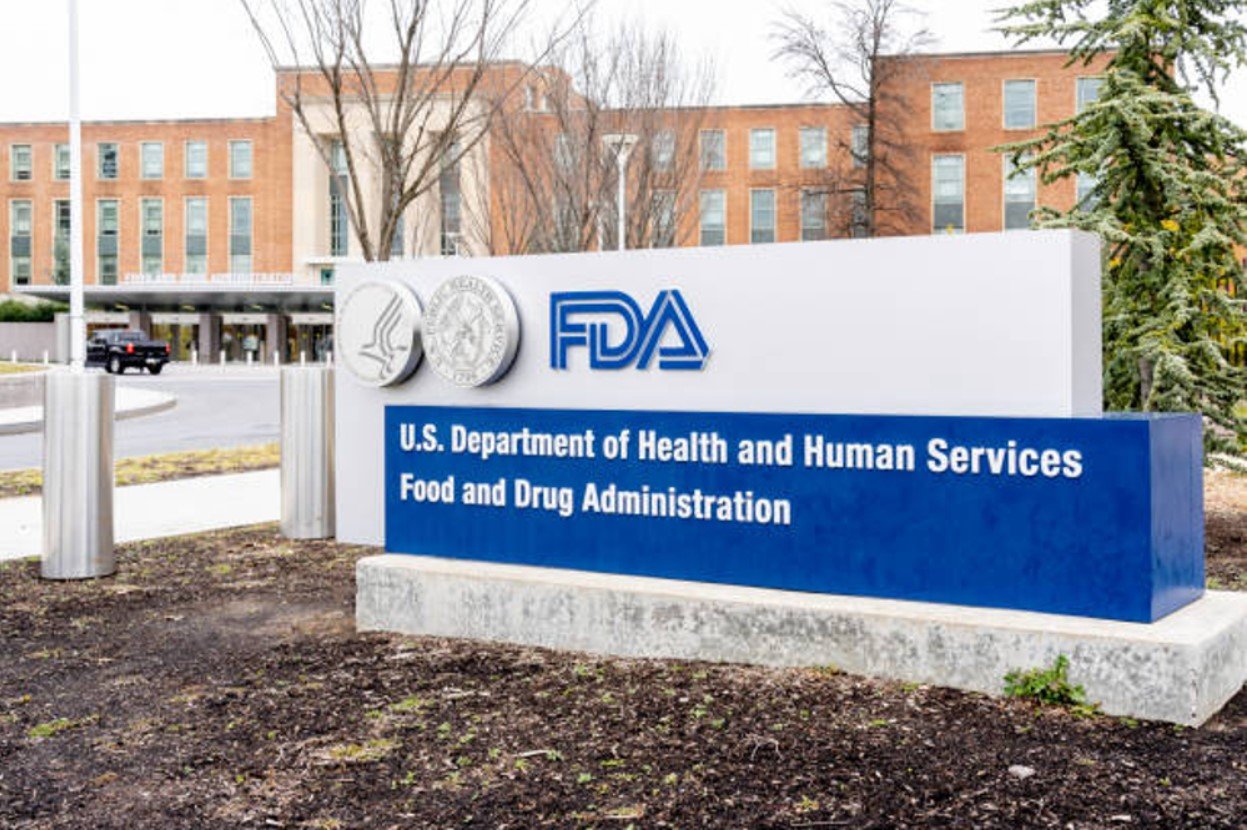
The very next day, the FDA shared the announcement from Roland Foods to ensure as many Americans as possible know that the small batch of tahini could be contaminated with salmonella and should be discarded immediately.
The statement explained that while no illnesses related to the product have been reported, there could be salmonella lingering in any of the bottles from this contaminated batch.
How to Know if Your Roland Tahini Is Possibly Contaminated
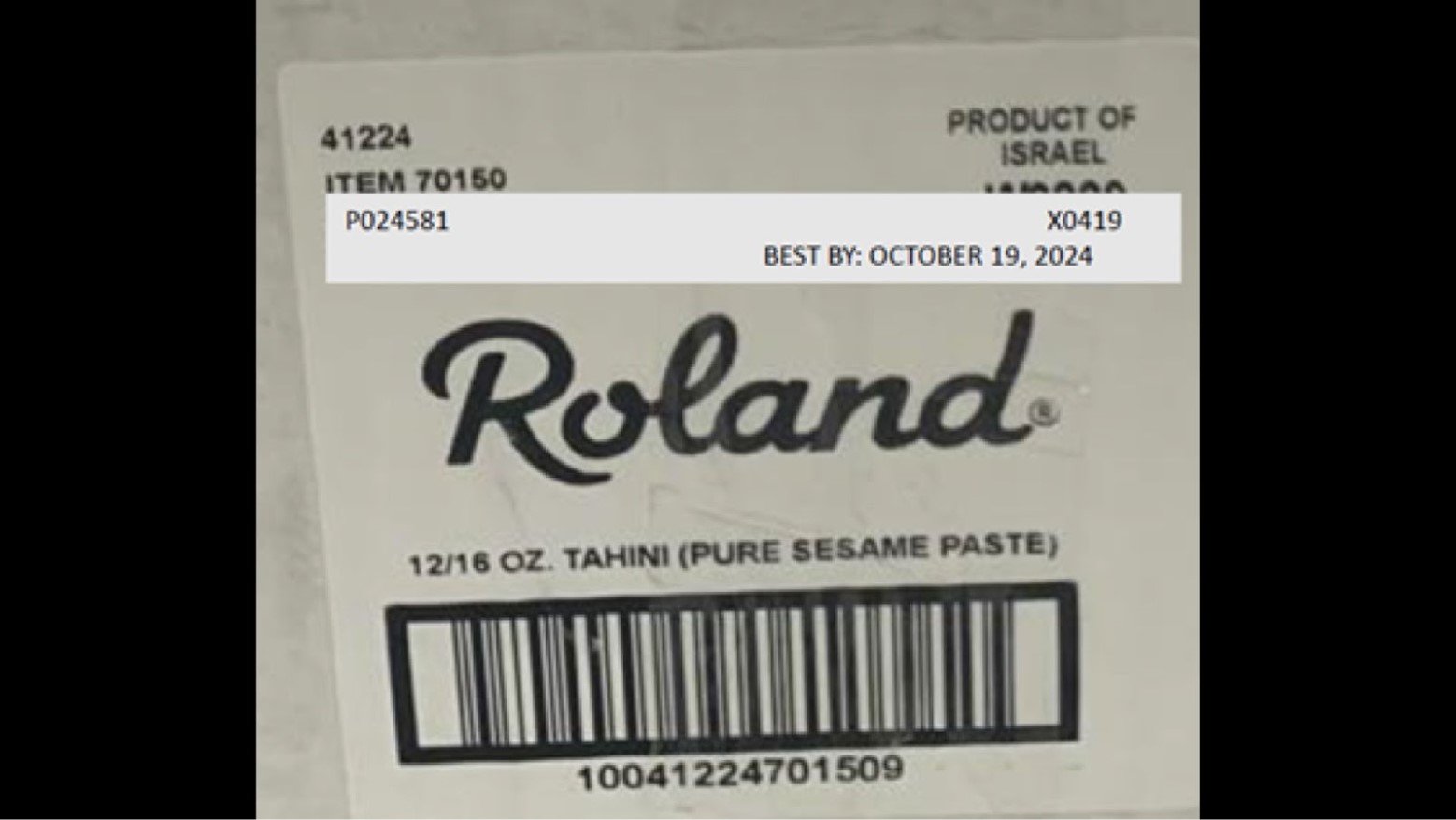
Roland Foods explained, “This recall ONLY APPLIES to Roland® Tahini (100% Ground Sesame Seeds) 16 oz., Batch Number P024581, Production Code X0419, UPC Number 10041224701509, with a Best By Date of October 19, 2024.”
They also shared a photograph that explained to customers where they could find the batch, production, and UPC numbers on the product’s barcode.
What Are the Symptoms of Salmonella?

For those who may have ingested the tahini before becoming aware of the recall, Roland Foods explained that they should be on the lookout for any symptoms of salmonella, including fever, diarrhea, abdominal pain, nausea, and vomiting.
Anyone experiencing these symptoms after eating the contaminated condiment should absolutely see a doctor as soon as possible.
What Happens When Someone Gets Salmonella?
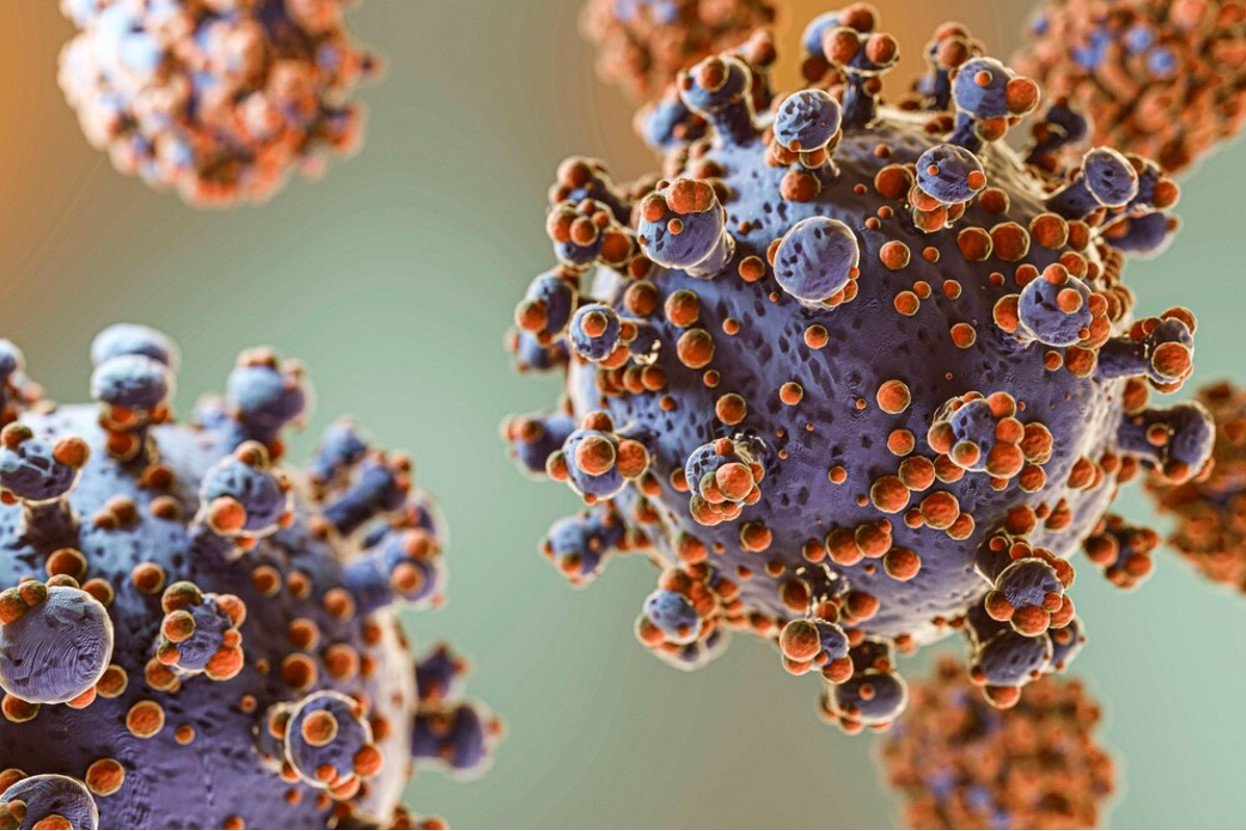
Luckily, even though the symptoms are certainly unpleasant, they don’t usually last long and are easily treatable.
For most people, salmonella simply works its way through the body and doesn’t need treatment. However, those with aggressive symptoms may need a round of antibiotics.
There Are Some Cases in Which the Patient Needs to Be Hospitalized

That being said, because the bacteria can cause extreme diarrhea which can result in dehydration, some patients do need to be hospitalized, which is why it’s crucial to see a medical professional after noticing symptoms.
Additionally, salmonella can be contagious through human contact. So, even if someone doesn’t need treatment, they do need to know if they have it to ensure they don’t spread it.
Roland Foods’ Tahini Isn’t the Only Product Being Pulled Off the Shelves

Roland’s tahini is just the latest in a long line of recalled food products. In fact, there have been several recalls announced in just the past two months.
From World Variety Produce’s Melissa’s Kimchi to Nam & Son soybean sprouts, ToYou-branded Snack Bars, and more, it seems like there is an FDA recall every other week.
Several Cured Meats Were Recalled Last Month

Additionally, the Center for Disease Control and Prevention (CDC) announced in January 2024 that 11,097 pounds of cured meats produced by Fratelli Beretta USA possibly contained Salmonella bacteria.
The U.S. Food Safety and Inspection Service (FSIS) explained that after finding evidence of Salmonella contamination within the meat, they are currently worried about a “multistage outbreak.”
Why Are Foods Recalled?

Sometimes, like for the recent cured meat and tahini recall, companies or government organizations find a source of contamination and bacteria, such as salmonella.
But in other cases, like Melissa’s Kimchi and ToYou Snack Bars, the problem is that the products contain allergens that were not accurately included in the nutritional information.
Are There More Food Recalls Now Than There Used to Be?
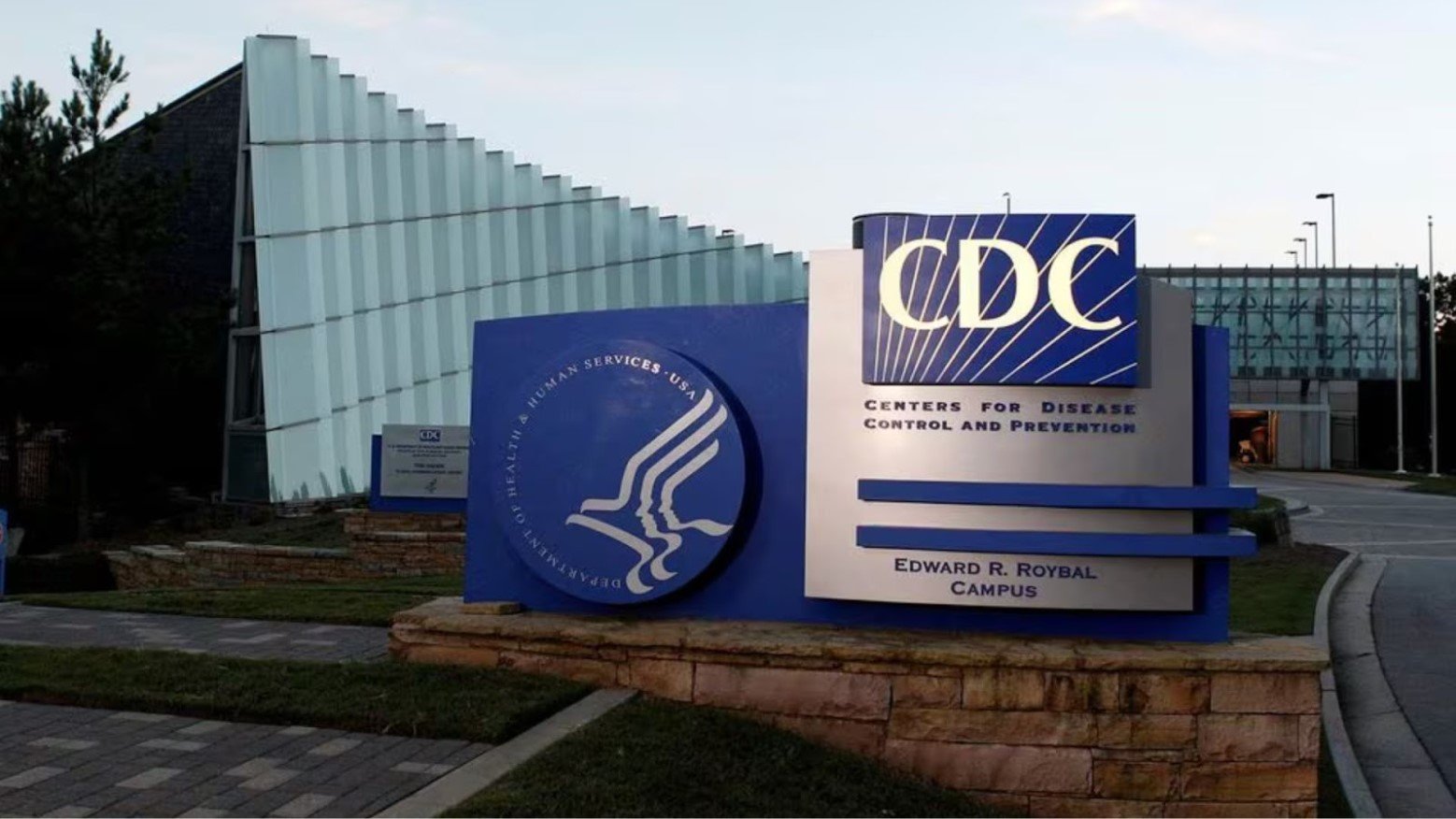
It may seem like more and more foods are being recalled by the FDA or CDC than ever before. And unfortunately, that feeling isn’t just a feeling, it’s a fact.
According to Food Safety News, the “total number of units recalled under the authority of the FDA increased by 700 percent in 2022 compared to 2021,” and that number is still growing.
It’s Important to Watch Out for Upcoming FDA Recalls
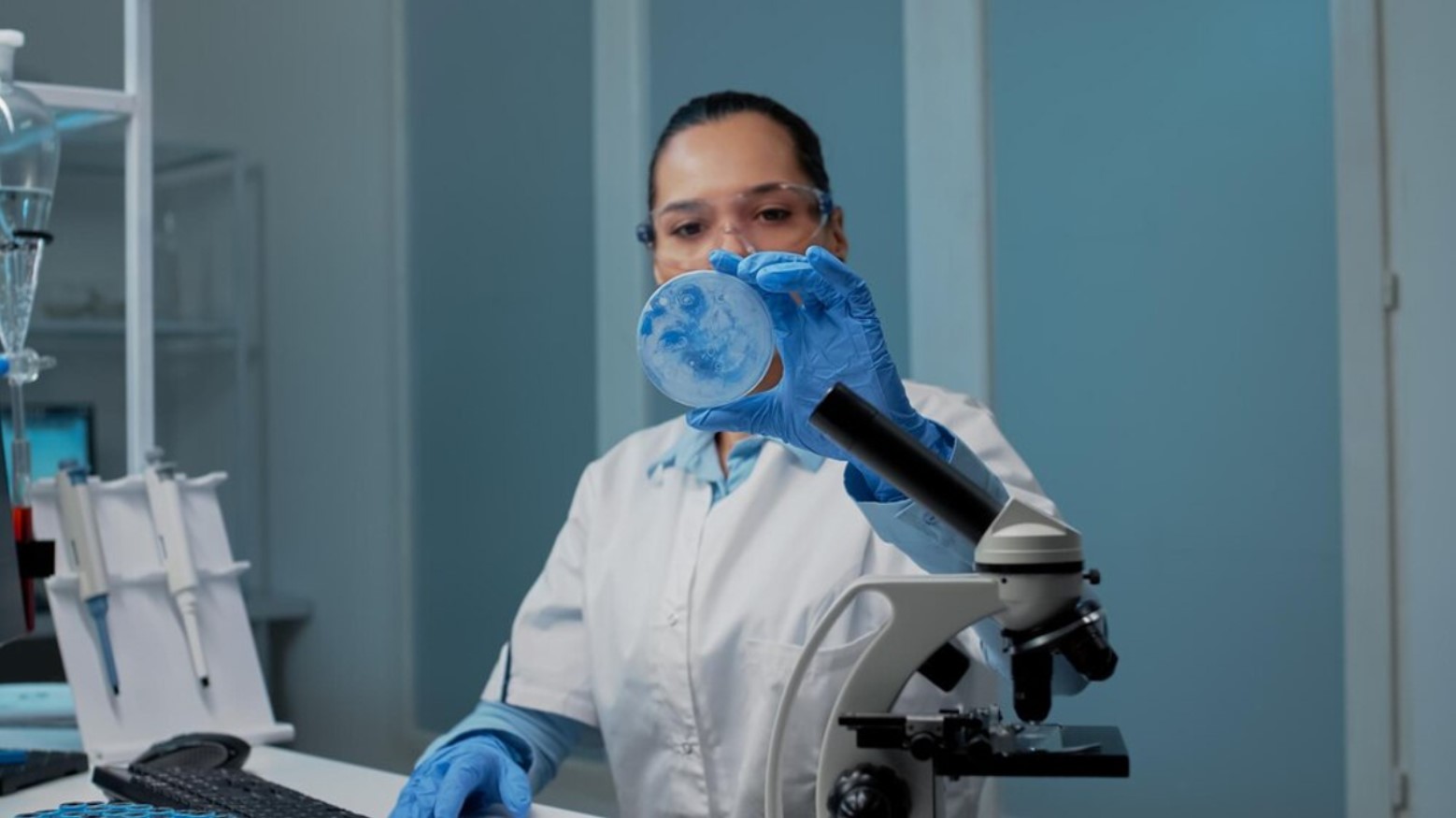
The FDA monitors 80% of the nation’s food products, and thankfully, the organization is tirelessly watching each and every company and product to ensure Americans stay safe and healthy.
However, FDA recalls can only help if people know about them. Therefore, it’s extremely important that everyone checks the current FDA recalls on a regular basis to ensure they don’t ingest contaminated products.








































